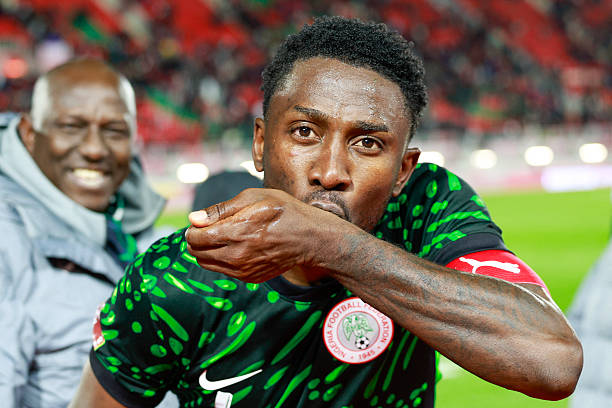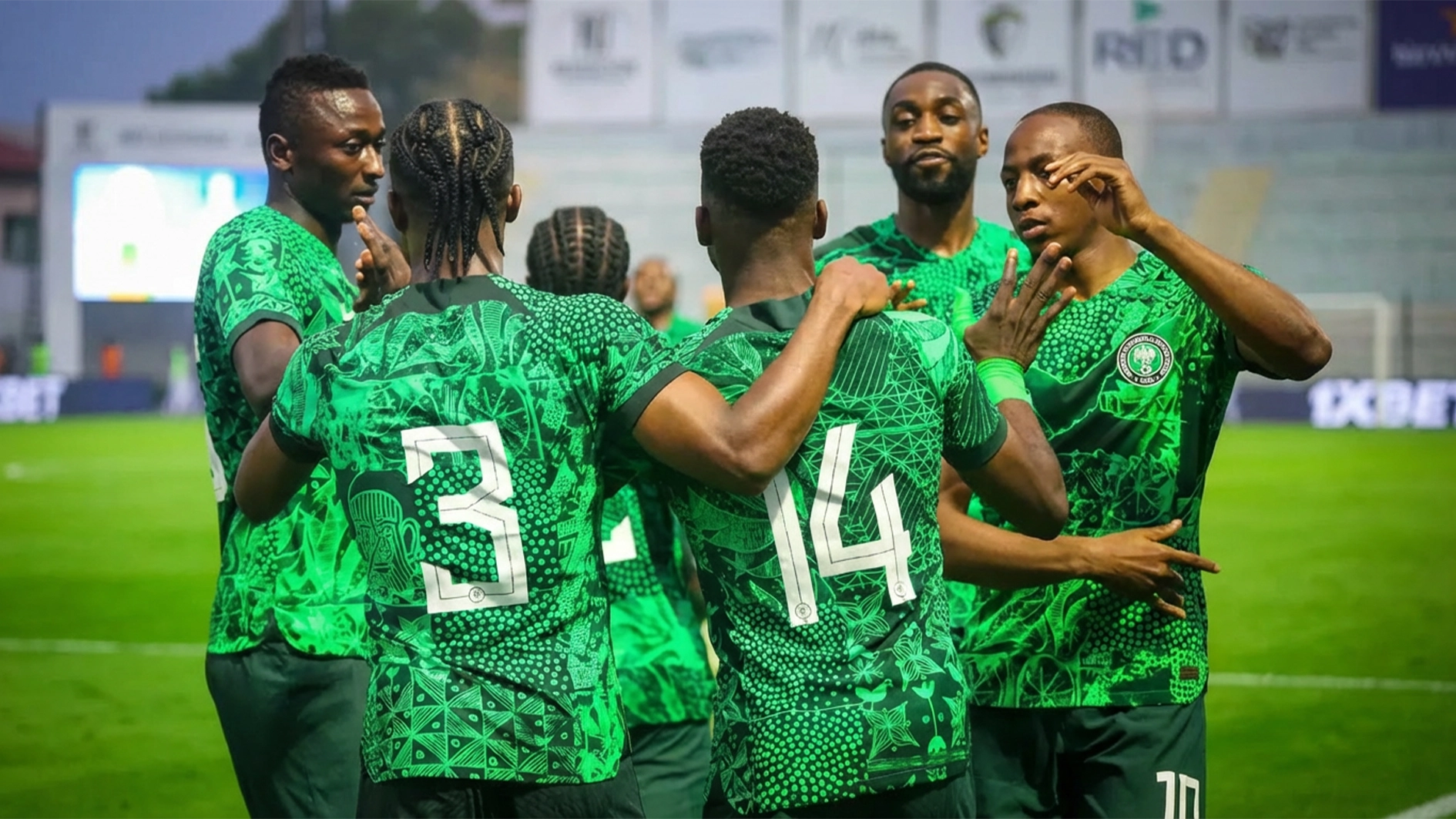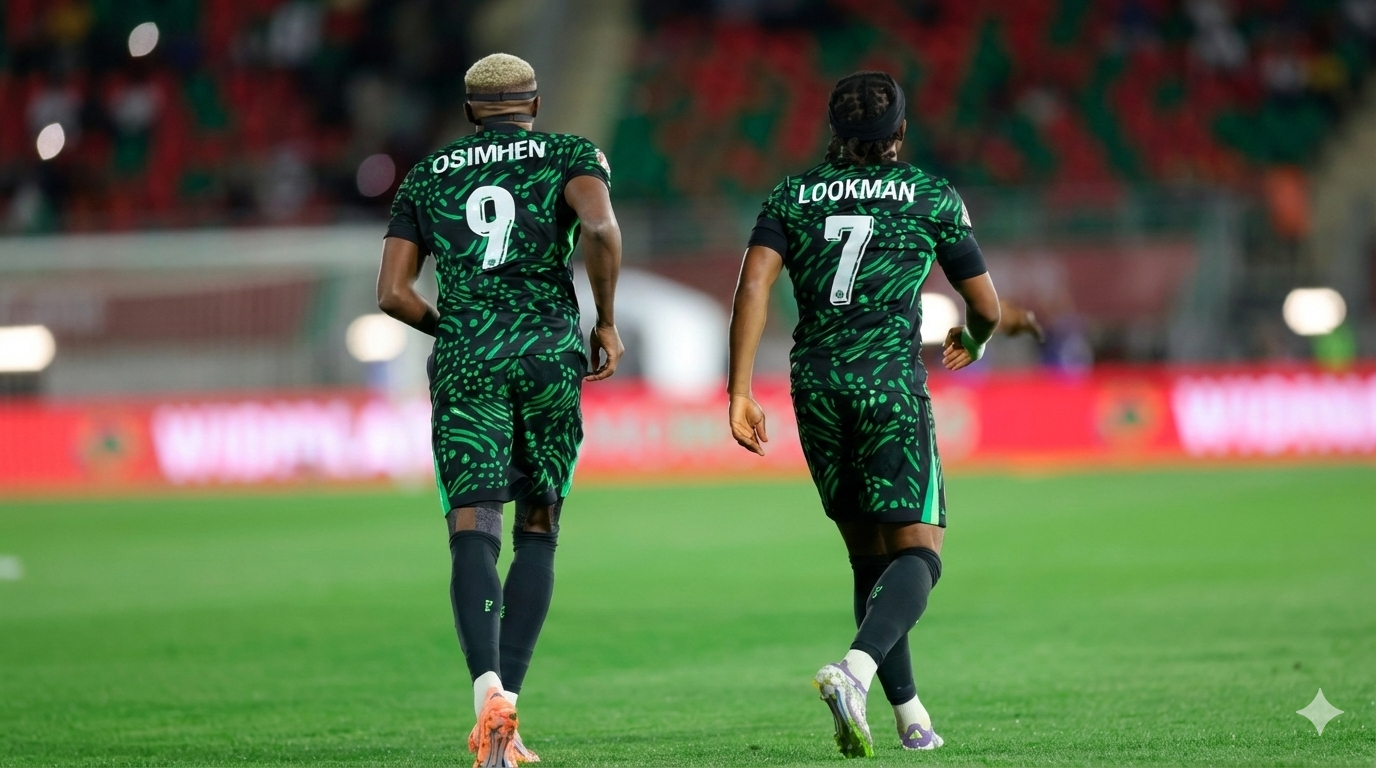When the draw for the 2026 World Cup African qualifying series was made in July 2023, many football fans believed that Nigeria would easily qualify from Group C due to the quality of players available for selection and the Super Eagles’ pedigree on the continent. But that was not to be. GOWON AKPODONOR looks at factors responsible for Nigeria’s failure to qualify outright.
Nigeria’s senior national football team, the Super Eagles, which at one time was the fifth-best team in the world, is currently rated as one of the most inconsistent sides in the global game.
Illustrating the high level of inconsistency is simple. Only a few months ago, it dealt decisively with some of the topsides in African football, but suddenly struggled to scale the hurdles placed on its path by such “minnows” as Lesotho, Zimbabwe and Rwanda in the 2026 World Cup qualifying series.
It is not as if the team does not know the significance of being at the FIFA World Cup, which is the second biggest sports showpiece in the world. Rather, Nigeria’s ill fortune is largely self-made as the Super Eagles literally threw away the opportunity to return to the World Cup through the African qualifiers.
Although the approach to FIFA World Cup qualifiers varies from country to country, it is generally accepted that a team requires meticulous preparation, unwavering technical and tactical support from the coaching staff, and disciplined management of off-field stress and logistics. This includes creating a professional environment where the football association supports the coaching staff, refrains from interfering with technical decisions, handles travel and accommodation efficiently, and ensures players are mentally prepared to cope with intense pressure and media scrutiny.
This means that football associations must allow the coach to pick the team based on their technical and tactical needs, execute all travel arrangements, secure standard hotels, arrange training pitches, and provide the right food when the team is billed to play abroad.
To build team unity, the FA must also ensure that the team’s technical and tactical decisions are not constantly second-guessed by committees, which can create a hostile environment.
According to experts, for sound technical and tactical performance, players and coaches must develop a strong strategy that can be applied consistently throughout the qualifying campaign, just as the coaches are expected to understand and manage the immense pressure from the media, fan expectations, and national pride to avoid negative impacts on confidence and mental state.
While talent is crucial, consistency in performance over the long qualifying period is key, as any careless attitude by the players could be disastrous in the race for the qualification ticket.
Unlike the Olympic Games, where individual athletes are required to score some points or meet certain qualification standards, the qualification process for the FIFA World Cup is organised by continental confederations, and they have different structures and timelines.
Depending on the confederation, qualification involves playing in a group stage and possibly a play-off to determine the final standings. The process can be complex and unpredictable, with supposedly strong teams sometimes facing early elimination from the race.
When the fixtures for the 2026 FIFA World Cup were released in 2023, many felt that the Super Eagles were the team to beat in Group C of the CAF qualifiers.
This was so because, in terms of pedigree and quality, all the countries in Group C (South Africa, Rwanda, Lesotho, Benin, and Zimbabwe) were way behind Nigeria in FIFA rankings.
Apart from South Africa (55), which was 10 places below Nigeria in the rankings at that time, and Benin, which was ranked 93rd, the other three countries were outside the top 120 in the world.
But all that paper ratings soon vanished when the qualifying series began, with the Super Eagles surprising their biggest admirers with a mere two points out of a possible six after the first two rounds of games. At Week Nine of the race, the Super Eagles had just three wins from a possible nine, drawing five games and losing one.
Just as in 2022, when the country lost the Qatar World Cup ticket to Ghana, the Super Eagles had a chaotic run in the 2026 qualifiers, with three different coaches overseeing the country’s second-place finish in Group C.
The Super Eagles began the race with Portuguese coach, Jose Peseiro, leading the country to two points out of six after draws with Lesotho in Uyo and Zimbabwe in their South Africa “home” ground.
With just two points from two games, the Nigeria Football Federation (NFF) decided to sever ties with Peseiro and appointed Finidi George as the new head coach.
However, that action did not solve the problem, as the Super Eagles could only secure one point from their subsequent two games against South Africa, a 1-1 draw in Uyo, and a humiliating defeat by the Benin Republic in the Cheetahs’ adopted home of Abidjan, Côte d’Ivoire.
Nigeria’s campaign in the race to North America actually took off when Malian, Eric Sekou-Chelle, took over from George.From a possible 18 points in six games, Chelle led the Super Eagles to 14 points.
Chelle’s journey began with a 2-0 victory over Rwanda in the first game, but he was brought down to earth in the next game against Zimbabwe in Uyo, who forced the Super Eagles to a 1–1 draw that brought back the old worries.
By the time the dust settled with a 4-0 defeat of the Benin Republic in Uyo, the damage was already done as South Africa promptly beat Rwanda 3-0 to win Group C with 18 points despite losing three points and three goals for fielding an ineligible player in one of their games.
Nigeria’s 17 points were enough to take the Super Eagles to the African playoff, which, if they win, will present another opportunity for them to meet six other teams in an inter-confederation playoff, which guarantees the winner and runner-up tickets to the big show in the United States, Canada and Mexico next year.
The African playoff, which will be held in Morocco next month, has elicited mixed reactions from football followers, with some believing that the team has learnt its lessons and is now ready to live up to its reputation as the giant of African football.
The 2026 World Cup qualification race evokes memories of past misadventures where the Super Eagles threw away tickets due to a combination of the FA’s cluelessness, players’ indiscipline and poor decision-making by some of the coaches that handled the team at different times.
In the race to the 2006 World Cup hosted by Germany, Nigeria failed to qualify because the leadership of the NFF failed to plan effectively for the qualifiers, just as the players treated the gams with kid gloves and paid dearly for it.
For instance, in one of the games against the eventual winners of its group, Angola, Coach Christian Chukwu was forced to play with only 13 players as the NFF failed to ensure that players invited for the game were in Luanda for the match.
The highlight of this misadventure was the alleged claim by team captain, Austin Okocha, that he missed his way to the airport in London and therefore could not make the trip to Angola. Then, Okocha was playing in the English Premier League for Bolton Wanderers.
In Angola, Chukwu had to draft some Enugu Rangers’ players, who were on a continental assignment in Angola, to prosecute the World Cup campaign, which Nigeria lost 0-1, handing the advantage to the Palancas Negras.
In the return leg in Kano, the Super Eagles were forced to a 1-1 draw; a result that came after some of the players strolled into the team’s camp at the last minute as if nothing was at stake.
As was the case in the 2026 World Cup, with the ticket almost sold out after the draw with Angola, the Super Eagles suddenly came alive to beat Zimbabwe 5-0 in their last game of the campaign.
Both Nigeria and Angola finished level on points, but the Angolans advanced to Germany 2006 on a superior head-to-head record — despite Nigeria’s better goal difference. Twenty years later, history repeated itself.
In terms of goals, Nigeria was ahead of Angola, but FIFA applied the head-to-head rule to determine the winner. Nigeria lost out. One of the things stakeholders see as Nigeria’s Achilles’ heel is the belief among some players that they will always be selected for the team, regardless of what happens. This lack of competition in several positions in the team, they said, gave these players a faulty sense of invincibility that ruined the Eagles’ campaign in Group C.
Things became so dire during the last phase of the qualifiers that Rwanda coach Adel Amrouche said a team of the Super Eagles’ quality should not struggle to qualify for the FIFA World Cup.
“If I were coaching a team like the Super Eagles, with the quality of players that they have, my target would be to reach the quarterfinals of the FIFA World Cup, at the very minimum. Qualifying for the World Cup should not be the issue,” Amrouche said.
Given the team’s penchant for self-destructing, a former Green Eagles winger, Adegoke Adelabu, said that the Super Eagles may even struggle to secure a playoff ticket in Morocco, unless the players change their attitude. Qualifying the team as technically unpredictable, Adelabu queried: “How did we get to this stage in our football as a nation?
“Nigeria now celebrates a playoff ticket as if we have won the World Cup. The most frustrating aspect of the whole ridiculous situation is that the government is not perturbed by the issue. We only use our success in sports for political propaganda and the wasting of our resources by giving out money indiscriminately.
“The issue is, our players are technically unpredictable, but the god of soccer could be merciful on us again, just to qualify and still come back with nothing.
“But the question is, how long are we going to stay at this level of mediocrity? What is happening to our league? What kind of players are we choosing to represent us? Are they the right kind of players or the players that football agents want to market?”
A former Super Eagles defender, Eric Ejiofor, blames the players’ attitude for the team’s poor form throughout the qualifiers. Ejiofor, who played for Nigeria at the Japan/Korea 2002 FIFA World Cup, said: “Imagine how they come to the team’s camp; some enter on Tuesday, Wednesday and Thursday to take part in only two training sessions and thereafter want to play a match. It’s not possible; it doesn’t work like that.
“Football is teamwork, we aren’t playing as a team, and I won’t keep my hope. I have already accepted that we will be at the World Cup. From day one, we weren’t serious about it.
“I don’t think the players understand that they are competing to play in the World Cup. It is so sad because their attitude towards the game isn’t encouraging. Ejiofor, who played for Nigeria at the Japan/Korea 2002 FIFA World Cup, continues:
“Let’s remove the aspect of the Nigerian Football Federation. We know they have their own issues, but as a player, you must think about your future and career. Most players get big contracts after the World Cup.
Nigeria’s chances of qualifying for the 2026 FIFA World Cup will be decided at the CAF playoff in Morocco next month and the intercontinental playoff in March in Mexico.
The African playoff is a mini-tournament in Morocco, taking place from November 13 to 16, where Nigeria will face Gabon in the semifinals and confront the winner of the match between Cameroon and DR Congo in the final.
If the Super Eagles win in Morocco, they will automatically be seeded directly into the final round of the intercontinental playoffs thanks to their strong FIFA ranking.
In that stage, Nigeria will face one of the semifinal winners, specifically the lowest-ranked among them, giving the Super Eagles a real edge.
While Nigeria is ranked 45th in the latest FIFA ranking, other countries in both the African and intercontinental playoffs are ranked lower. They are Costa Rica 47th, Cameroon 52nd, Iraq 58th, DR Congo 60th, UAE 67th, Jamaica 69th, Bolivia 77th, Gabon 79th, Curaçao 86th and New Caledonia 150th.






